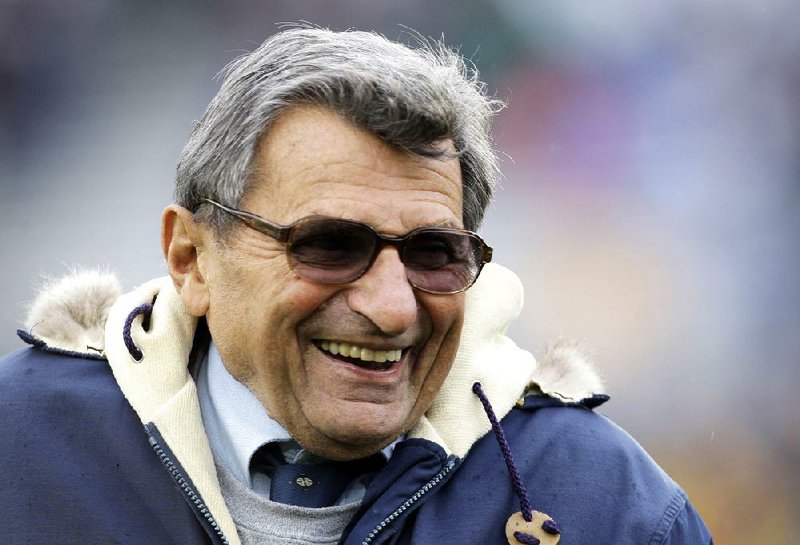PHILADELPHIA — A new legal document that claims a boy told Joe Paterno in 1976 that Jerry Sandusky had molested him has reignited debate about what the Penn State coach knew about his longtime assistant decades before his arrest.
Details of the testimony remain hidden inside a sealed deposition in Penn State's court fight with the Pennsylvania Manufacturers' Association Insurance Co. Paterno family members immediately dismissed the claim.
Philadelphia Judge Gary Glazer wrote in an opinion this week that the insurer's evidence includes a claim that one unnamed assistant coach saw "inappropriate contact" between Sandusky and a child at the university in 1987 and a second unnamed assistant coach "reportedly witnessed sexual contact" between Sandusky and a child a year later.
"Also in 1988, a child's report of his molestation by Sandusky was allegedly referred to PSU's athletic director," Glazer wrote, citing events described in a number of the victims' depositions. He said there was "no evidence that reports of these incidents ever went further up the chain of command at PSU."
The judge also found that the liability insurance did not cover a seven-year period ending in 1999 because Penn State's policies at the time did not cover abuse or molestation.
Glazer wrote that when Sandusky abused children at his home or at events held by the children's charity he founded, "he was still a PSU assistant coach and professor, and clothed in the glory associated with those titles, particularly in the eyes of impressionable children. By cloaking him with a title that enabled him to perpetuate his crimes, PSU must assume some responsibility for what he did both on and off campus."
The source of the 1976 allegations was not disclosed in Glazer's ruling. Penn State said in November it had paid 32 Sandusky-related claims amounting to $93 million.
